Sample A: Cover Page of Thesis, Project, or Dissertation Proposal
Sample A: Cover Page of Thesis, Project, or Dissertation Proposal
Sample A: Cover Page of Thesis, Project, or Dissertation Proposal
Create successful ePaper yourself
Turn your PDF publications into a flip-book with our unique Google optimized e-Paper software.
families that interact with a child about emotions and view emotional instances as<br />
teaching opp<strong>or</strong>tunities, as follows (p. 48-49):<br />
...helping the child to verbally label the emotions being felt, showing respect f<strong>or</strong><br />
the child‘s experience <strong>of</strong> this emotion (i.e., accepting the emotion), when the child<br />
is upset, the parent talking to the child, intervening in situations that caused the<br />
emotion, at times comf<strong>or</strong>ting the child during the emotion, teaching the child<br />
appropriate rules f<strong>or</strong> expressing the emotion, educating the child about the nature<br />
<strong>of</strong> the emotion, teaching the child strategies f<strong>or</strong> dealing with the emotion, and f<strong>or</strong><br />
soothing the intense levels <strong>of</strong> the emotion.<br />
Acc<strong>or</strong>ding to Denham‘s (1998) model, these practices can foster children‘s emotional<br />
competence. By showing respect f<strong>or</strong> the children‘s emotional experiences, comf<strong>or</strong>ting<br />
children during expressions <strong>of</strong> emotions, and soothing intense levels <strong>of</strong> emotions, f<strong>or</strong><br />
instance, emotion-coaching families model emotional expressions f<strong>or</strong> children. By<br />
talking to children when upset and intervening in situations causing emotions, emotion-<br />
coaching families react to children‘s emotional expressions. By helping children to<br />
verbally label their emotions, teaching children appropriate rules f<strong>or</strong> expressing emotions,<br />
educating children about the nature <strong>of</strong> emotions, and teaching children strategies f<strong>or</strong><br />
dealing with emotions, emotion-coaching families coach children‘s emotions. These<br />
practices all contribute to children‘s understanding <strong>of</strong> emotions, emotional expressions,<br />
and emotion regulation, which in turn contribute to children‘s social competence<br />
(Denham, 1998).<br />
23



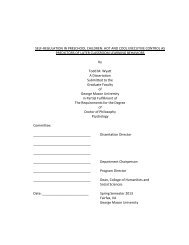
![[Sample B: Approval/Signature Sheet] - George Mason University](https://img.yumpu.com/21978828/1/190x245/sample-b-approval-signature-sheet-george-mason-university.jpg?quality=85)

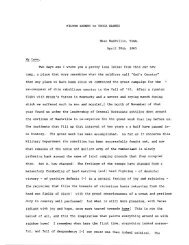
![[Sample B: Approval/Signature Sheet] - George Mason University](https://img.yumpu.com/18694905/1/190x245/sample-b-approval-signature-sheet-george-mason-university.jpg?quality=85)
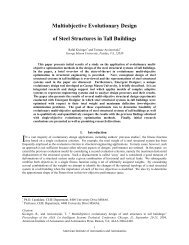

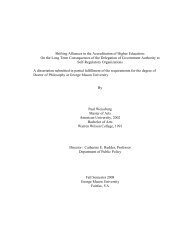
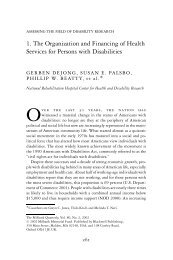
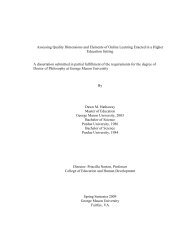
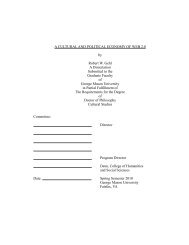
![[Sample B: Approval/Signature Sheet] - George Mason University](https://img.yumpu.com/18694552/1/189x260/sample-b-approval-signature-sheet-george-mason-university.jpg?quality=85)
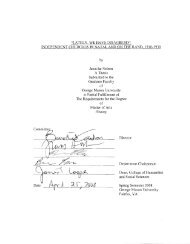
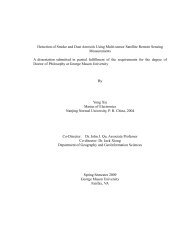
![[Sample B: Approval/Signature Sheet] - George Mason University](https://img.yumpu.com/18694474/1/190x245/sample-b-approval-signature-sheet-george-mason-university.jpg?quality=85)